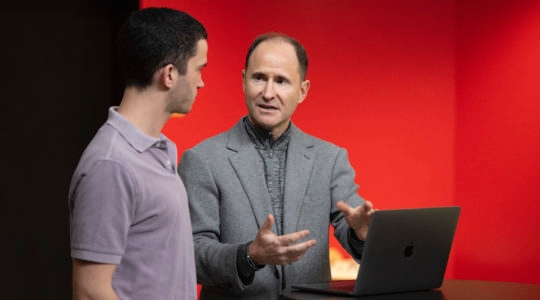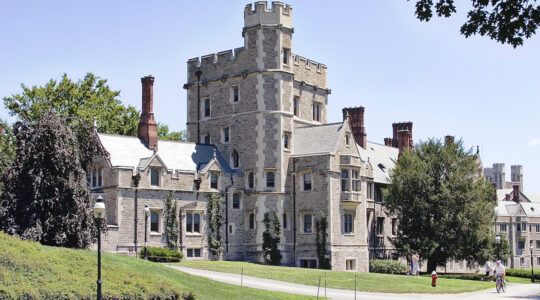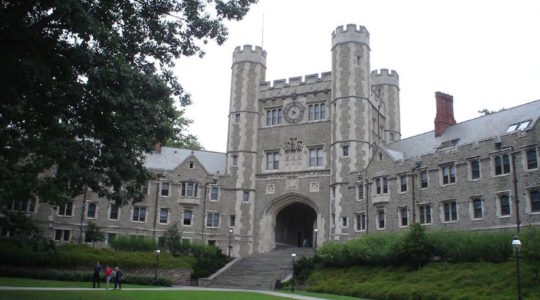(JTA) – Emory University issued a formal apology to Jewish dental students who attended the school between 1948 and 1961 and faced anti-Semitism.
University President James Wagner delivered the apology at a special event Wednesday night that included 32 former students, now in their 70s and 80s, of the Atlanta school. The students had received failing grades, were thrown out of school or were forced to repeat classes only because they were Jewish.
"I hereby express in the deepest, strongest terms, Emory’s regret for the anti-Semitic practices of the dental school during those years," Wagner said. "We at Emory also regret that it has taken this long for those events to be properly acknowledged. I am sorry; we are sorry."
Among the 450 people present was Perry Brickman, a retired oral surgeon from Atlanta who was kicked out of Emory in 1952 along with his three Jewish classmates and whose subsequent research about anti-Semitism at Emory was an impetus for the apology. Brickman spent many years interviewing fellow Emory students who faced discrimination, and his work was featured in the documentary film “From Silence to Recognition: Confronting Discrimination in Emory’s Dental School History.”
The documentary was shown last year to Emory’s board of trustees, who decided there needed to be a public apology, Emory University Vice President Gary Hauk told JTA.
“When we saw Brickman’s documentary, it was evident he had a story about discrimination — one that needed to be confronted and needed an apology,” Hauk said. “It’s a regrettable part of the institution’s history, and it’s shameful that it did happen. But there’s a renewed agreement to make sure discrimination like this doesn’t happen at our school again.”
The documentary film also was shown at Wednesday’s event.
“I was a good student, I did my work and got good grades, but I still got a letter that I was kicked out,” Brickman told JTA in an interview. “The whole thing was so embarrassing. But there was nothing we could do about it, so we just moved on and didn’t speak to each other. Nobody in the community wanted to do anything. We were dealing with immigration issues and hate speech from the KKK, so we didn’t want to make waves.”
The anti-Semitic policies at the dental school have been attributed to its then-dean, John Buhler. In 1962, the Anti-Defamation League presented the university with data showing that 65 percent of Emory’s Jewish students faced trouble – a sign, the organization said, of obvious discrimination. The university at the time denied being anti-Semitic, but shortly after Buhler resigned as the school dean.
“We are grateful to President Wagner for his forthright leadership in acknowledging and apologizing for a policy that has haunted many of the Jewish students throughout their long lives,” Bill Nigut of the ADL said in a statement this week. “We are now hearing powerful, painful stories of how they came to doubt their own abilities, were viewed as failures by parents and friends, and had to rethink careers — all because the dental school dean at the time was an anti-Semite, and other administrators and faculty either ignored or abetted his prejudice.”
JTA has documented Jewish history in real-time for over a century. Keep our journalism strong by joining us in supporting independent, award-winning reporting.





